In the early hours of July 10, many Kyiv residents were jolted awake by the thundering sound of ballistic missiles shaking their buildings.
Others were already lying awake in beds, bathtubs, and underground shelters across the city, as residents endure a new normal of intensified Russian strikes on the capital.
"You lie down, look into the abyss of night, and hear the loudest attack," Hryhorii Matsebok, a 47-year-old artist, told the Kyiv Independent. "And you think the end has already come."
Matsebok, a resident of Kyiv’s Shevchenkivskyi district, said the overnight attack was one of the most intense he had experienced in three years of war.
Since the start of the year, Russia has dramatically scaled up its aerial attacks across Ukraine, breaking record after record of firepower used — and of civilian casualties. The sound of explosions and the whine of drones overhead has become increasingly familiar in recent months, as residents cope with new anxieties, tragedies, and mounting hours of lost sleep.
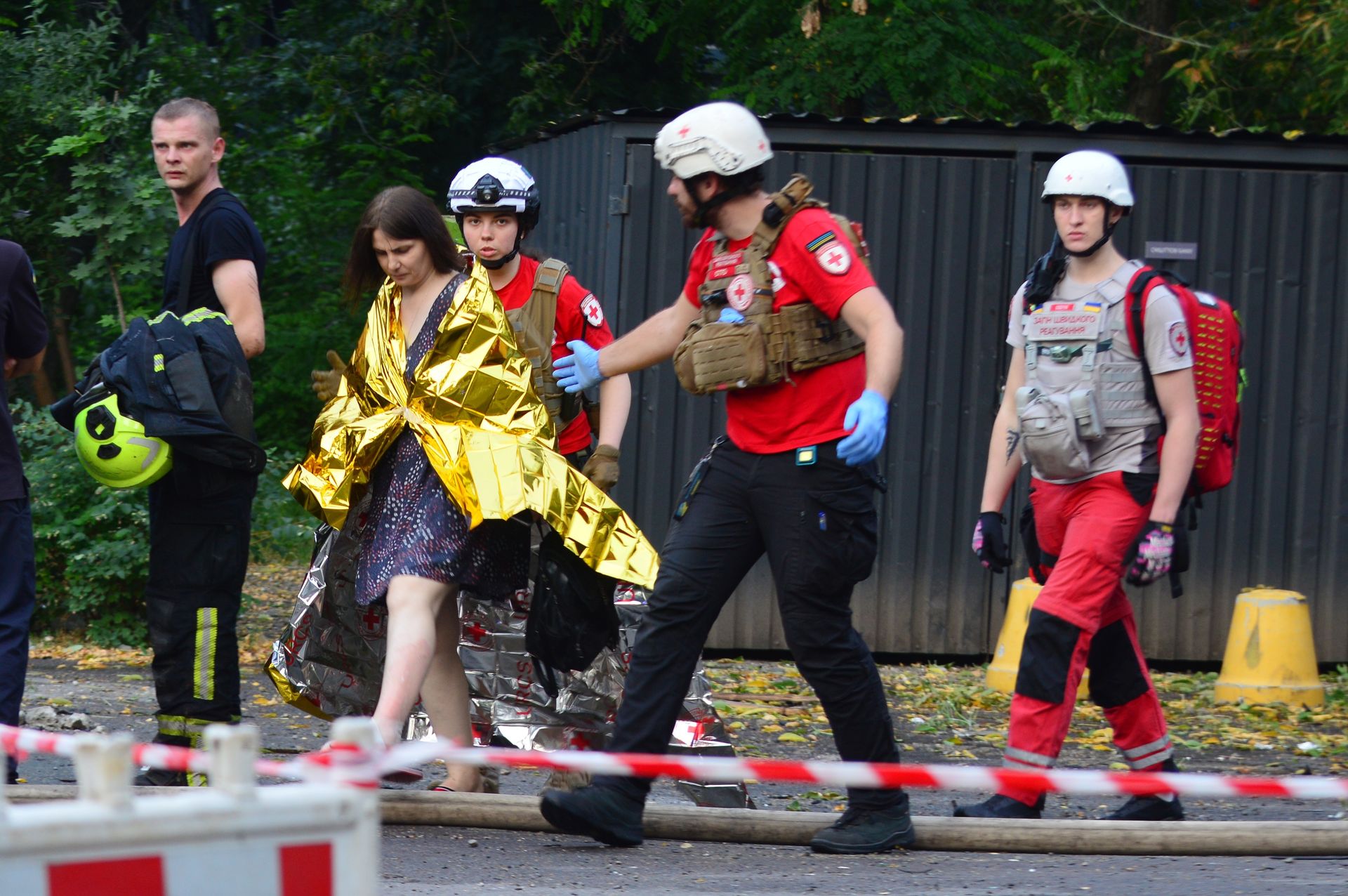 Red Cross medics evacuate a woman from a damaged residential building after a Russian drones and missiles attack on July 10, 2025 in Kyiv, Ukraine (Oleksandr Gusev/Global Images Ukraine via Getty Images)
Red Cross medics evacuate a woman from a damaged residential building after a Russian drones and missiles attack on July 10, 2025 in Kyiv, Ukraine (Oleksandr Gusev/Global Images Ukraine via Getty Images)
The capital city has long been a refuge for displaced civilians fleeing for safety from the eastern and southern areas of the country. But as Russia steps up its attacks, residents in Kyiv, too, are increasingly vulnerable.
In the latest overnight strike, Russian armed forces launched 397 Shahed loitering munitions and decoy drones, along with 8 ballistic missiles and 10 cruise missiles, according to Ukraine’s Air Force.
The main target was the capital city, where two were killed and at least 19 were injured during the mass attack.
“Children spend many nights not tucked in bed, but sheltering in corridors, basements, and bathrooms.”
Aiida Nashchanska, an 18-year-old student studying to become a singer, had an exam in the morning and had wanted a full night’s rest.
"I woke up, and it’s still shaking and everything is shaking. I was very afraid that the windows would fly out," she said. The explosions were so close to her in the Troyeshchyna region of Kyiv that it "felt like it was exploding under my house," she said.
She ran to the bathroom — often the safest part of a building away from windows and exterior walls — and had difficulty tearing herself away from the news alerts about the latest launches and flight directions of missiles and drones overhead.
"I watch the news and I understand that I don't know when (the attack) will end, but I needed to sleep," she said. She lay awake praying for survival until she calmed down enough to get some rest.
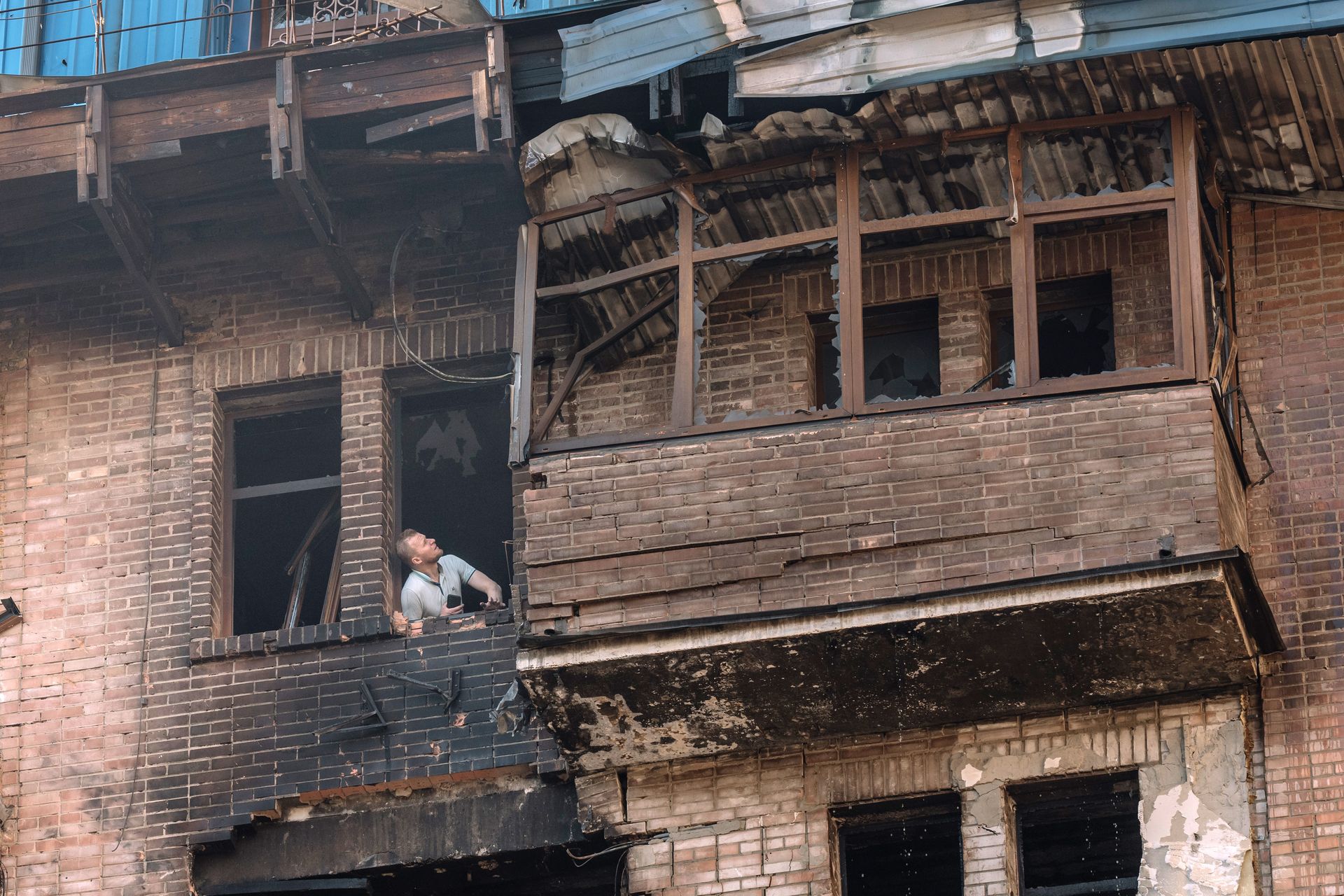 A resident looks at the damage to apartments following Russian air strikes in Kyiv, Ukraine, on Thursday, July 10, 2025 (Andrew Kravchenko/Bloomberg via Getty Images)
A resident looks at the damage to apartments following Russian air strikes in Kyiv, Ukraine, on Thursday, July 10, 2025 (Andrew Kravchenko/Bloomberg via Getty Images)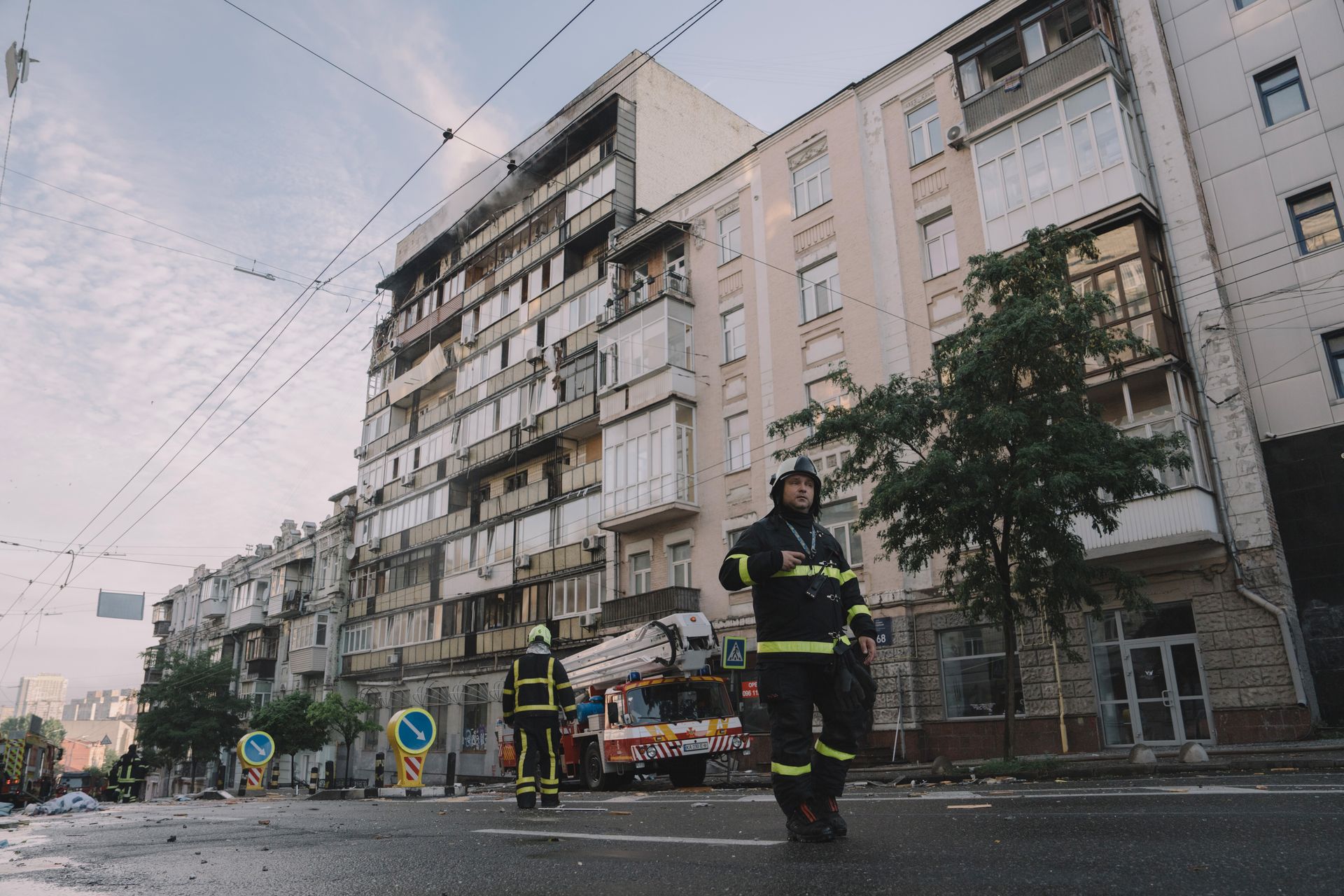 Emergency service workers at the site of a Russian air strike which hit a residential building in Kyiv, Ukraine, on Thursday, July 10, 2025 (Andrew Kravchenko/Bloomberg via Getty Images)
Emergency service workers at the site of a Russian air strike which hit a residential building in Kyiv, Ukraine, on Thursday, July 10, 2025 (Andrew Kravchenko/Bloomberg via Getty Images)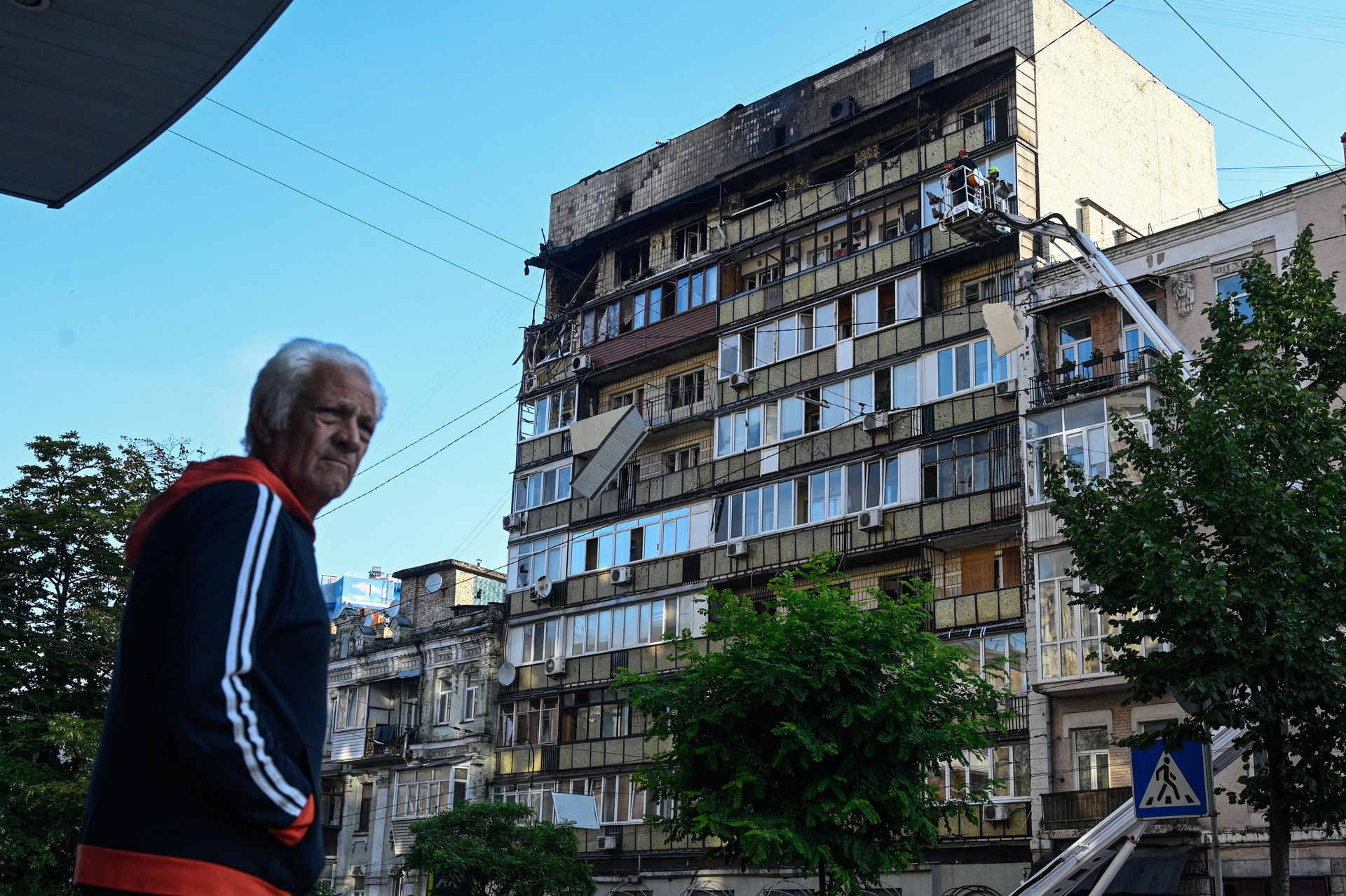 A local resident reacts at the site of a Russian attack that damaged a resident building in Kyiv, Ukraine on July 10, 2025 (Danylo Antoniuk/Anadolu via Getty Images)
A local resident reacts at the site of a Russian attack that damaged a resident building in Kyiv, Ukraine on July 10, 2025 (Danylo Antoniuk/Anadolu via Getty Images)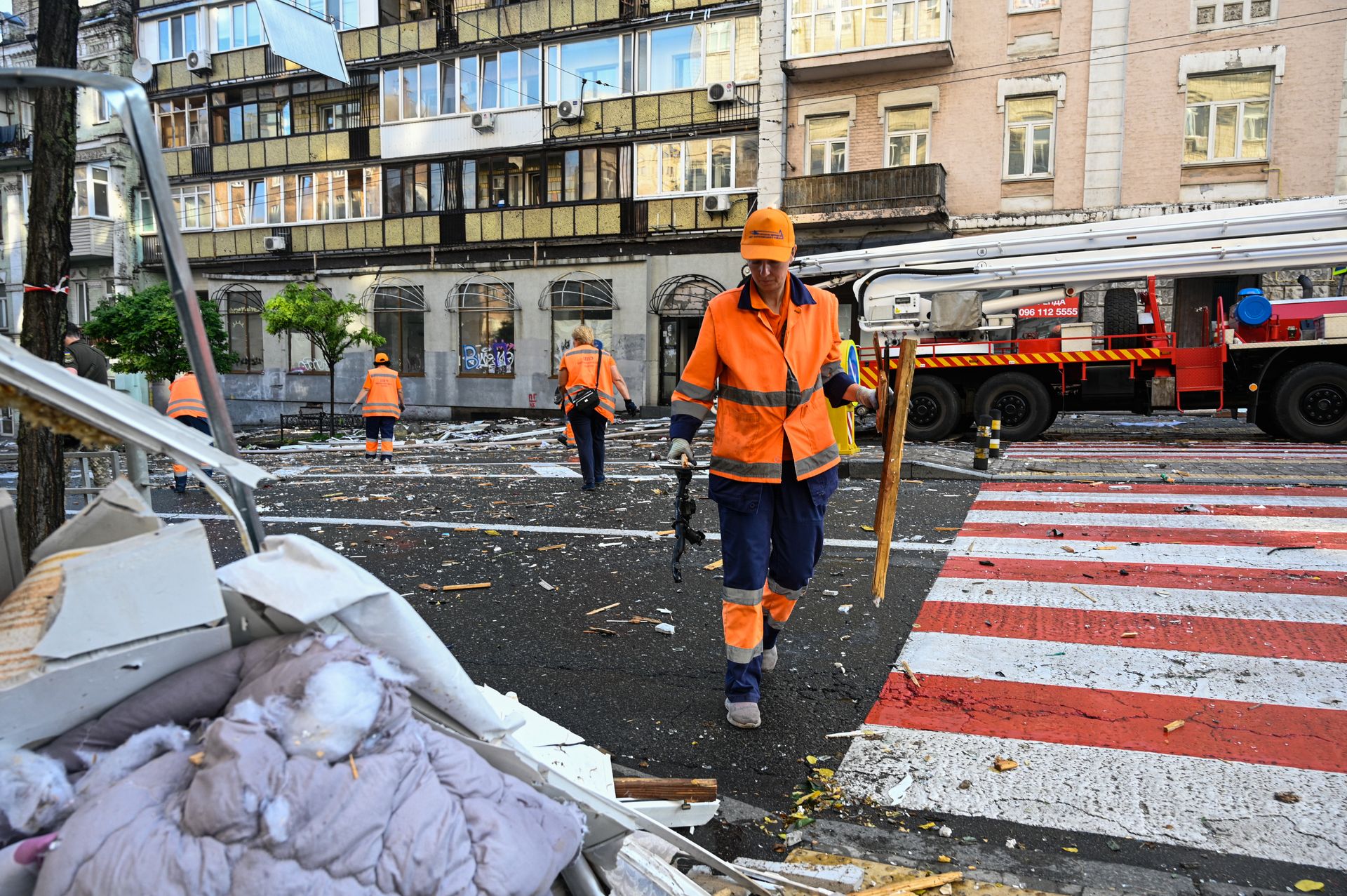 A communal worker is seen working at the site of a Russian attack that damaged a resident building in Kyiv, Ukraine on July 10, 2025 (Danylo Antoniuk/Anadolu via Getty Images)
A communal worker is seen working at the site of a Russian attack that damaged a resident building in Kyiv, Ukraine on July 10, 2025 (Danylo Antoniuk/Anadolu via Getty Images)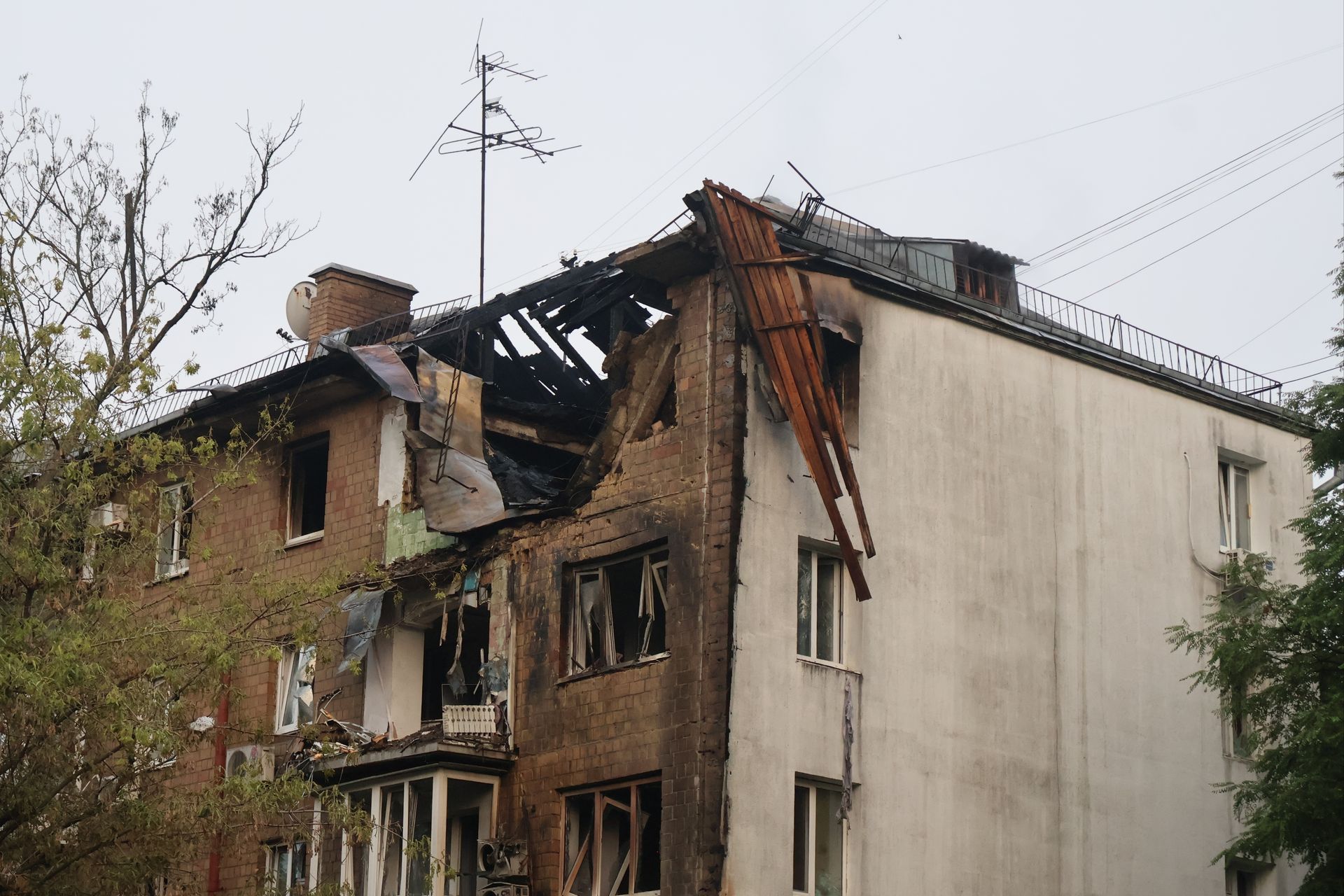 A view of a damaged residential building after a Russian drones and missiles attack on July 10, 2025 in Kyiv, Ukraine (Oleksandr Gusev/Global Images Ukraine via Getty Images)
A view of a damaged residential building after a Russian drones and missiles attack on July 10, 2025 in Kyiv, Ukraine (Oleksandr Gusev/Global Images Ukraine via Getty Images)
Last month, civilian casualties reached a three-year high, with 232 killed and 1,343 injured in June, according to a public statement from the UN Human Rights Monitoring Mission in Ukraine (HRMMU). A key reason for the rise is Russia’s increased use of missiles and drones in urban areas.
Compared with June of last year, Russia launched ten times more missiles and loitering munitions, HRMMU wrote, and "virtually no region of Ukraine was spared, regardless of its distance from the frontline."
"Civilians across Ukraine are facing levels of suffering we have not seen in over three years," Danielle Bell, Head of HRMMU, said in the July 10 statement released.
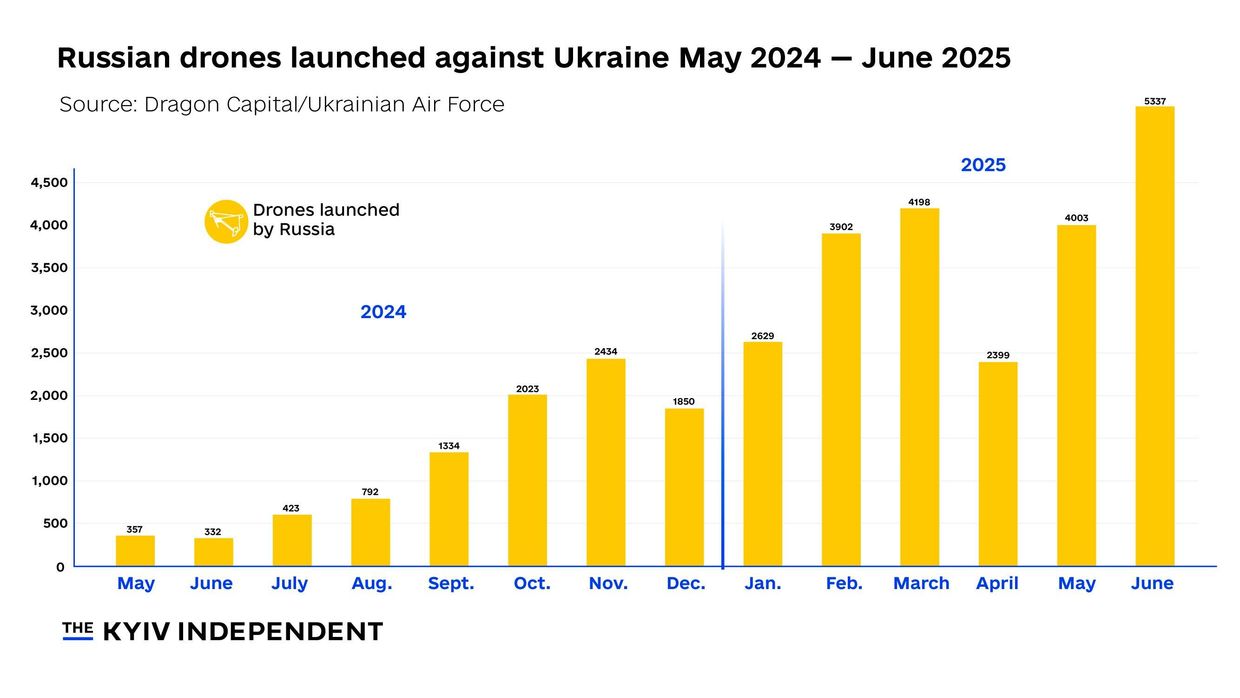 Russian drones launched against Ukraine by month. (Nizar al-Rifai/The Kyiv Independent)
Russian drones launched against Ukraine by month. (Nizar al-Rifai/The Kyiv Independent)
"The surge in long-range missile and drone strikes across the country has brought even more death and destruction to civilians far away from the frontline."
"Children spend many nights not tucked in bed, but sheltering in corridors, basements, and bathrooms, covering their ears from the sounds of sirens and explosions. These experiences bring lasting scars," Bell added.
During the attack, drones and missiles pummeled the city for hours. Fires broke out in apartment buildings, gas stations, and garages, and a primary healthcare center was almost completely destroyed, Kyiv Mayor Vitali Klitschko said.
In the aftermath of the attack, Ukraine’s Minister of Foreign Affairs Andrii Sybiha shared photos of firemen standing amid falling building debris, aiming their hoses at a smoldering apartment several stories above their heads.
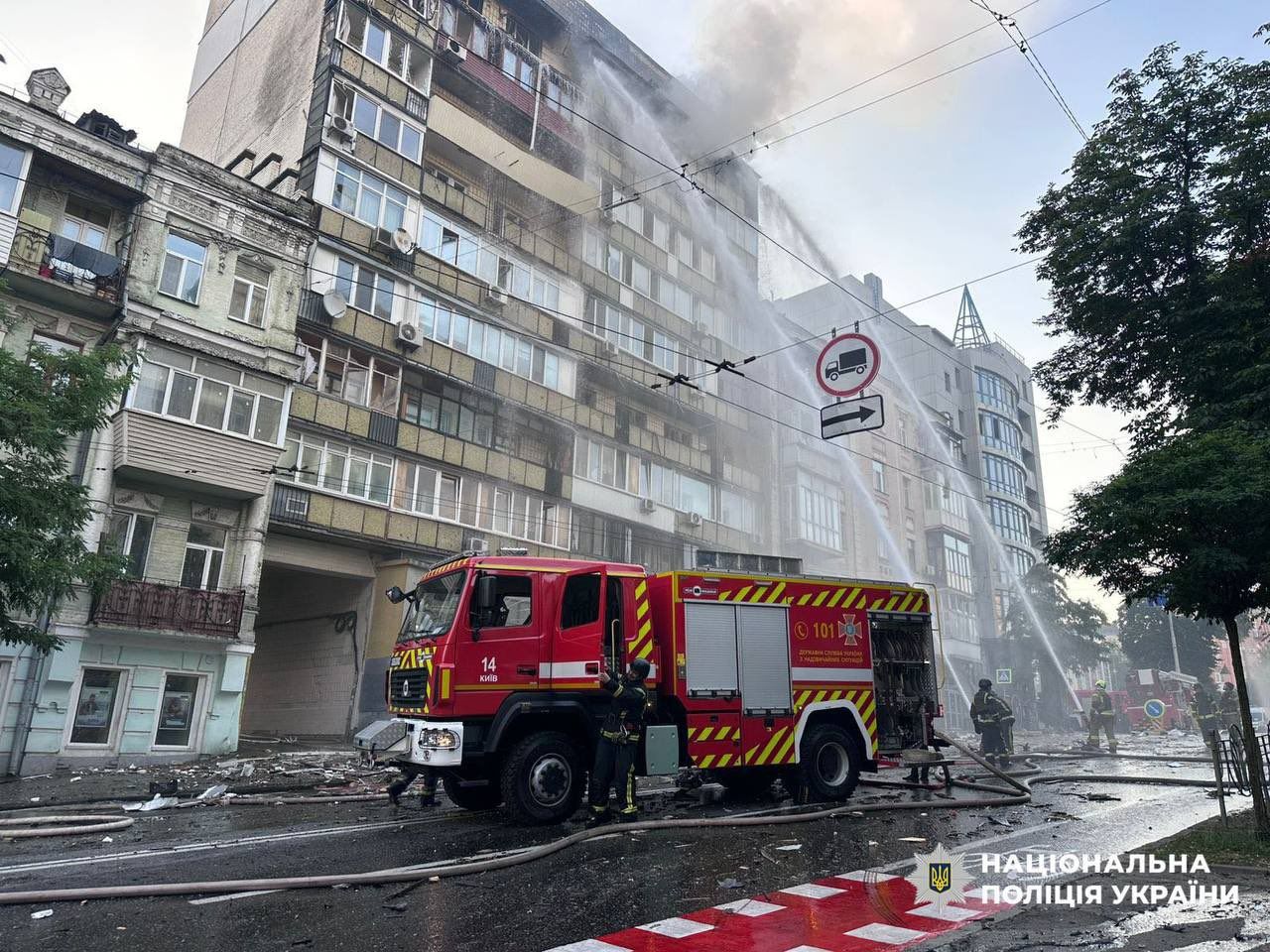 Firemen work to put out a blaze after a mass aerial attack on Kyiv on July 10, 2025. (Andrii Sybiha / X)
Firemen work to put out a blaze after a mass aerial attack on Kyiv on July 10, 2025. (Andrii Sybiha / X)
"Kyiv had a particularly dreadful night, with brutal attacks by swarms of drones and missiles, including ballistic missiles," Sybiha wrote on X.
"There are damaged residential buildings and civilian casualties in the capital, as well as thick smoke in the morning sky."
Viktor Kuzmenko, an 85-year-old who lives close to the damaged building in the Lukianivska district, told the Kyiv Independent that the sound of the strike was "very sharp, like a comet."
Because of his age, he struggles to walk or leave the house, he said, and didn’t think he could make it in time to an underground shelter from his 5th-story apartment when he heard the sound. In the morning, he saw smoke rising from the strike site.
"This is a clear escalation of terror by Russia — hundreds of 'Shaheds' every night, constant strikes, and massive attacks on Ukrainian cities," President Volodymyr Zelensky said on X.
The attack came one day after the largest aerial attack yet of the war, when on July 9, Russia launched more than 700 drones and 13 missiles. The main target during that attack was the Western city of Lutsk.
Olesia, a 33-year-old teacher who declined to give her last name, had been visiting friends in Kyiv's Pechersk region with the hopes of relaxing.
Instead, she said the attack on Kyiv was the first time since the outbreak of the full-scale invasion that she felt compelled to shelter underground. In her native Cherkasy region, the attacks haven't been as strong, she said.
About 40 minutes after the initial air raid alert, she heard neighbors in her building making their way past her and joined them as they sheltered on the first floor of the building – fearing that the walk to the underground subway would leave them too exposed.
"It was very difficult for me," she said. "I'll rest in Cherkasy."
Note from the author:
Hi, I’m Andrea Januta, thank you for reading our latest piece from Kyiv. We believe that now, more than ever, the world needs access to reliable reporting from the ground here in Ukraine. To keep our journalism going, we rely on our community of over 20,000 members, most of whom give just $5 a month. If you’d like to support the Kyiv Independent’s work, please consider supporting us by becoming a member.
Read also: Investigation: How Russia prepares its strategic missile plant for ‘eternal war’
From The Kyiv Independent - News from Ukraine, Eastern Europe via this RSS feed
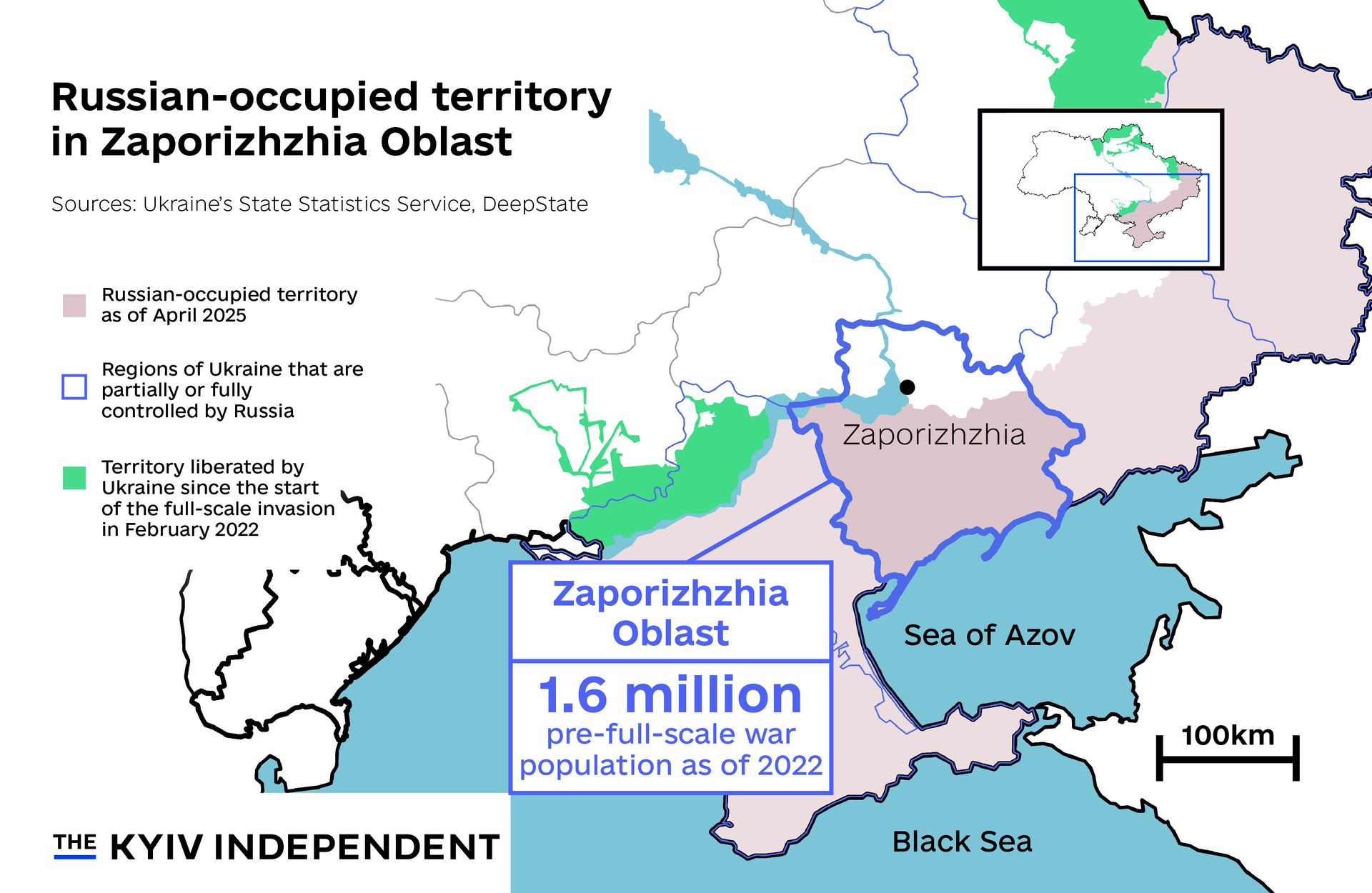 Map of Ukraine's Zaporizhzhia Oblast. (Nizar al-Rifai/The Kyiv Independent)
Map of Ukraine's Zaporizhzhia Oblast. (Nizar al-Rifai/The Kyiv Independent)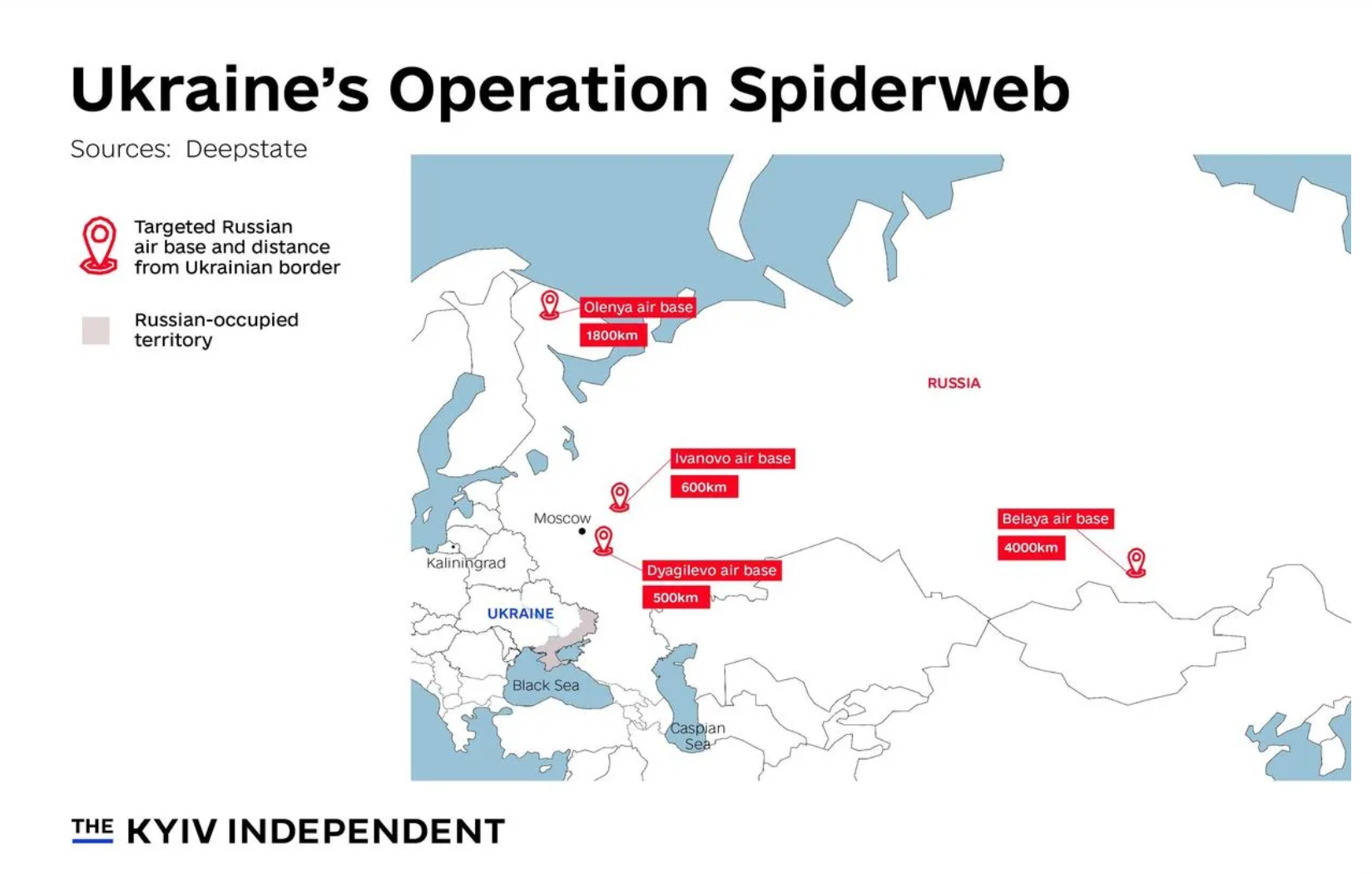 Ukraine's Operation Spiderweb. (Nizar al-Rifai/The Kyiv Independent))
Ukraine's Operation Spiderweb. (Nizar al-Rifai/The Kyiv Independent))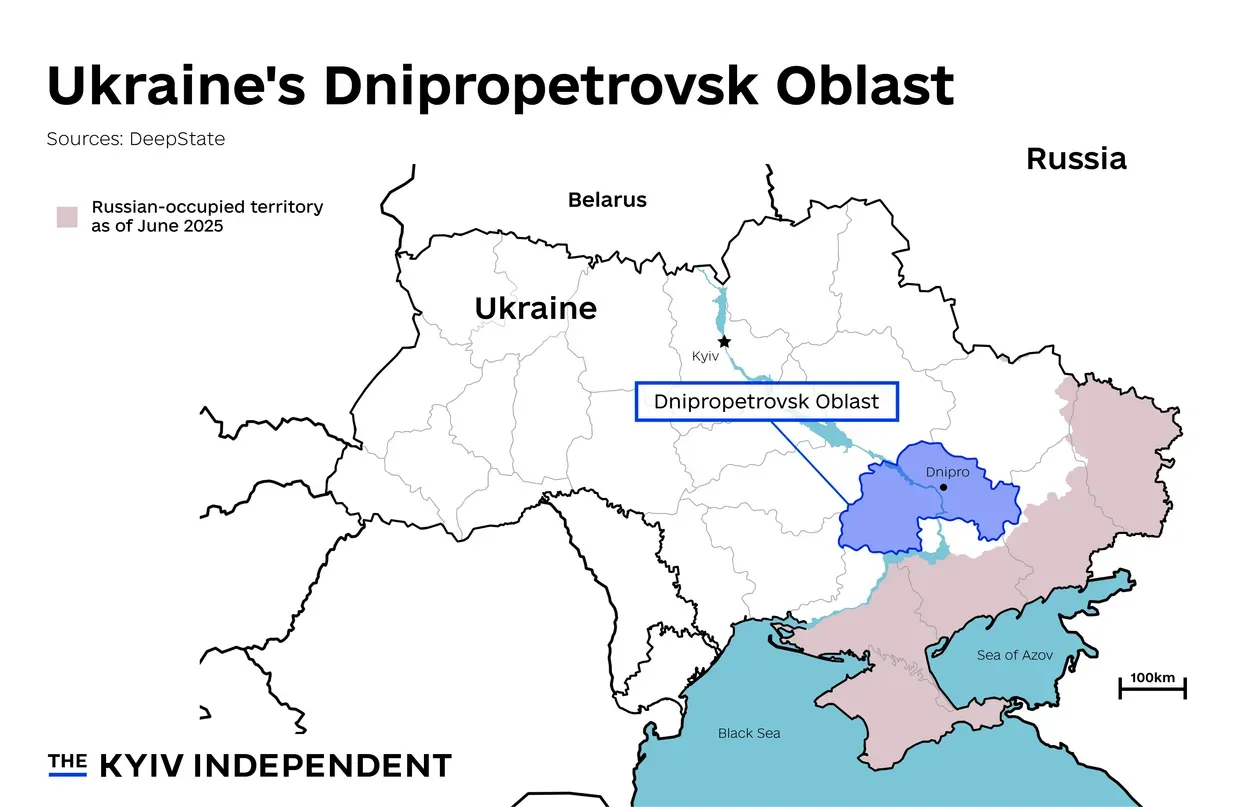 Ukraine's Dnipropetrovsk Oblast (Nizar al-Rifai/The Kyiv Independent)
Ukraine's Dnipropetrovsk Oblast (Nizar al-Rifai/The Kyiv Independent) Red Cross medics evacuate a woman from a damaged residential building after a Russian drones and missiles attack on July 10, 2025 in Kyiv, Ukraine (Oleksandr Gusev/Global Images Ukraine via Getty Images)
Red Cross medics evacuate a woman from a damaged residential building after a Russian drones and missiles attack on July 10, 2025 in Kyiv, Ukraine (Oleksandr Gusev/Global Images Ukraine via Getty Images) A resident looks at the damage to apartments following Russian air strikes in Kyiv, Ukraine, on Thursday, July 10, 2025 (Andrew Kravchenko/Bloomberg via Getty Images)
A resident looks at the damage to apartments following Russian air strikes in Kyiv, Ukraine, on Thursday, July 10, 2025 (Andrew Kravchenko/Bloomberg via Getty Images) Emergency service workers at the site of a Russian air strike which hit a residential building in Kyiv, Ukraine, on Thursday, July 10, 2025 (Andrew Kravchenko/Bloomberg via Getty Images)
Emergency service workers at the site of a Russian air strike which hit a residential building in Kyiv, Ukraine, on Thursday, July 10, 2025 (Andrew Kravchenko/Bloomberg via Getty Images) A local resident reacts at the site of a Russian attack that damaged a resident building in Kyiv, Ukraine on July 10, 2025 (Danylo Antoniuk/Anadolu via Getty Images)
A local resident reacts at the site of a Russian attack that damaged a resident building in Kyiv, Ukraine on July 10, 2025 (Danylo Antoniuk/Anadolu via Getty Images) A communal worker is seen working at the site of a Russian attack that damaged a resident building in Kyiv, Ukraine on July 10, 2025 (Danylo Antoniuk/Anadolu via Getty Images)
A communal worker is seen working at the site of a Russian attack that damaged a resident building in Kyiv, Ukraine on July 10, 2025 (Danylo Antoniuk/Anadolu via Getty Images) A view of a damaged residential building after a Russian drones and missiles attack on July 10, 2025 in Kyiv, Ukraine (Oleksandr Gusev/Global Images Ukraine via Getty Images)
A view of a damaged residential building after a Russian drones and missiles attack on July 10, 2025 in Kyiv, Ukraine (Oleksandr Gusev/Global Images Ukraine via Getty Images) Russian drones launched against Ukraine by month. (Nizar al-Rifai/The Kyiv Independent)
Russian drones launched against Ukraine by month. (Nizar al-Rifai/The Kyiv Independent) Firemen work to put out a blaze after a mass aerial attack on Kyiv on July 10, 2025. (Andrii Sybiha / X)
Firemen work to put out a blaze after a mass aerial attack on Kyiv on July 10, 2025. (Andrii Sybiha / X)